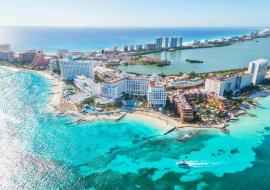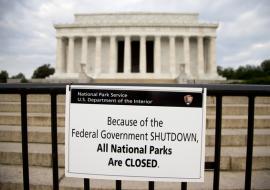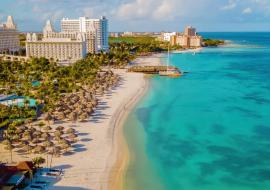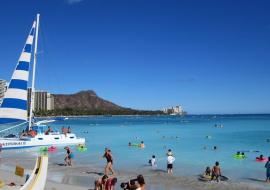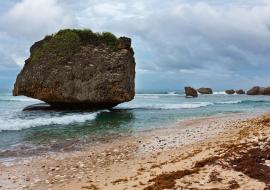The White House Puts Tighter Spin on Cuba Travel

The Trump administration has announced new actions to make it even harder for U.S. citizens to travel to Cuba under the popular people-to-people program, a modality that’s been around for quite some time and that got a big boost during the last two years of President Obama’s second term in office.
In a rollback of President Barack Obama’s rapprochement with the Cuban government since both countries announced the resumption of diplomatic relations back on December 17, 2014, the government of Donald Trump has now put a tighter spin on Americans willing to trade with Cuba or travel to the island nation.
The Department of the Treasury’s Office of Foreign Assets Control (OFAC) and the Department of Commerce’s Bureau of Industry and Security (BIS) announced amendments to the Cuban Assets Control Regulations (CACR) and Export Administration Regulations (EAR), respectively, to implement changes to the Cuba sanctions program announced by President Trump in June.
“The State Department is taking complementary steps to implement these policy changes that cumulatively seek to channel economic activities away from the Cuban military, intelligence, and security services, while maintaining opportunities for Americans to engage in authorized travel to Cuba and support the private, small business sector in Cuba,” a briefing on the update of the U.S.-Cuba relations reads.
The changes, that will take effect on Thursday, November 9, 2017, when the regulations are published in the Federal Register, will require all people-to-people nonacademic educational travel to be conducted under the auspices of an organization that is subject to U.S. jurisdiction and that sponsors such exchanges to promote people-to-people contact.
The new OFAC regulations will order such travelers to be accompanied by a person subject to U.S. jurisdiction who is a representative of the sponsoring organization. Individual people-to-people nonacademic educational travel will no longer be authorized as announced by President Trump.
Consistent with the Administration’s interest in avoiding negative impacts on Americans for arranging lawful travel to Cuba, certain people-to-people travel that previously was authorized will continue unbanned where the traveler had already completed at least one travel-related transaction (such as purchasing a flight or reserving accommodation) prior to President Trump’s June 16, 2017 announcement.
Americans engaging in certain authorized educational travel will now be required to do so under the auspices of an organization that is a person subject to U.S. jurisdiction.
These authorized educational travelers will now also be required to be accompanied by a person subject to U.S. jurisdiction who is a representative of the sponsoring organization, unless the traveler is the representative and obtains a certification letter from the sponsoring organization.
In the same breath, OFAC is requiring that each traveler under this travel category engage in a full-time schedule of activities that result in meaningful interaction with individuals in Cuba. Such activities must also enhance contact with the Cuban people, support civil society in Cuba, or promote the Cuban people's independence from Cuban authorities.
Renting a room in a private Cuban residence (casa particular), eating at privately owned Cuban restaurants (paladares), and shopping at privately owned stores run by self-employed Cubans (cuentapropistas) are examples of authorized activities. However, in order to meet the requirement of a full-time schedule, a traveler must engage in additional authorized Support for the Cuban People activities.
Advocates of full-fledged U.S.-Cuba relations, such as veteran Senator Patrick Leahy, have expressed their concerns about this rollback from the reestablishment of relations between both countries and the progress made in many fields since the historic announcement in late 2014.








